Kansas City Blues Society Archives
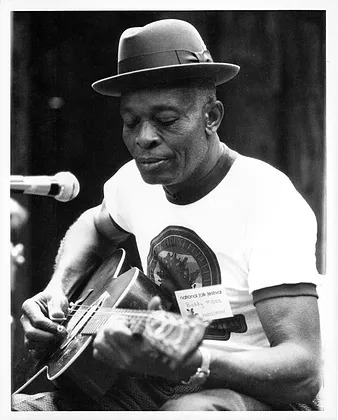
Buddy Moss
By Doyle M. Pace, originally published in the May 1994 Blues News With the focus so often on the Mississippi Delta area as the “cradle of the blues,” other places where the blues were nurtured are sometimes slighted. One such place is Atlanta, Georgia. In the years prior to World War I, its big city…
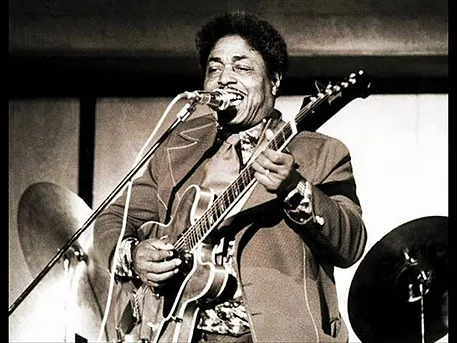
Johnny Shines
By Doyle M. Pace, originally published in the FMarch 1994 Blues News Johnny Shines was a highly gifted guitar player and a literate and poetic composer of blues lyrics. He was, as well, one of our greatest bluesmen. However, through unfortunate circumstances, he never attained the success and fame of his contemporary, Muddy Waters, or his…
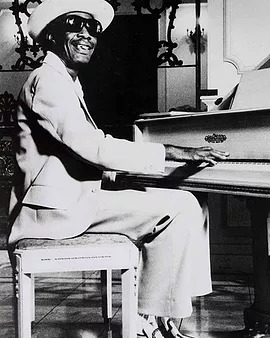
Professor Longhair
By Doyle M. Pace, originally published in the February 1994 Blues News In October of 1993, New Orleans premier music club, Tipitina’s, officially changed its name to Professor Longhair’s Tipitina to honor the legendary piano player, singer, and composer who made the club his home base for a number of years before his death. This tribute…
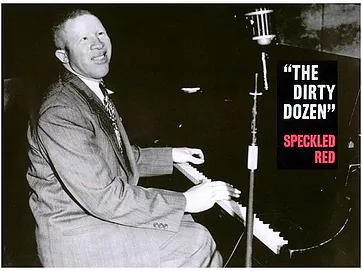
Speckled Red & the Dirty Dozens
By Doyle M. Pace, originally published in the April 1994 Blues News “Playing at the Dozens” or “Putting in the Dozens” is a folk game in which two or more participants hurl insults and boasts at one another. These highly imaginative and metaphorical comments are invariably obscene, frequently pornographic, and always aim to disparage an…
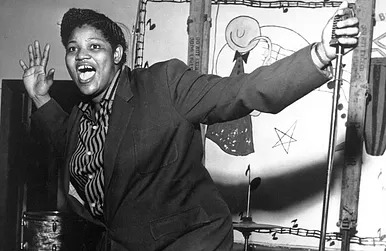
Willie Mae “Big Mama” Thornton
By Doyle M. Pace, originally published in the February 1995 Blues News In 1952, Willie Mae “Big Mama” Thornton recorded a robust and raunchy number with a lot of innuendo and double entendre about a fed-up female who is telling a no-account, libidinous sporting man to “hit the road:” “You ain’t nuthin’ but a “Hound…
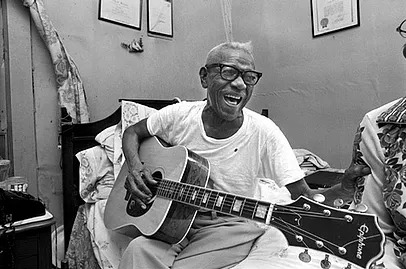
Walter “Furry” Lewis
By Doyle M. Pace, originally published in the December 1990 Blues News Beale Street, for the first quarter of this century, was one of the roughest and toughest, most rocking and swinging, wide-open streets in the country. It was a close counterpart of Kansas City’s Eighteenth and Vine. Memphis was the next major port up the Mississippi…
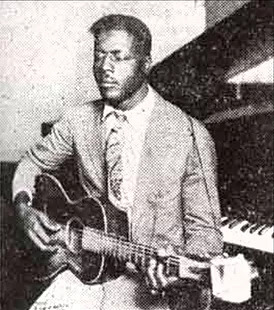
Blind Willie Johnson
By Doyle M. Pace, originally published in the May 1998 Blues News The Rev. Willie Johnson was a sanctified and holy man who played and sang gospel songs to bring edification and salvation to any lost souls who might hear him. No doubt he would be galled and scandalized if he had lived to see…
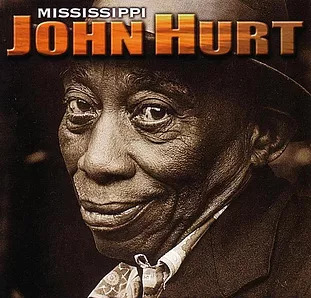
Mississippi John Hurt
By Doyle M. Pace, originally published in the Jan. 1996 Blues News A tiny gnome of a man with the countenance of an angel took the stage at the 1963 Newport Folk Festival and freaked out the rowdy audience (of mostly young white people) with his rendition of old-timey songster ballads and Mississippi folk blues…

Sam “Lightnin’” Hopkins
By Doyle M. Pace, originally published in the April 1990 Blues News The Last of the Old Country Bluesmen Sam “Lightnin’” Hopkins was a bluesman who carried on the old country cotton-field style of the early Texas blues. In fact, blues historian Samuel Charters has called Hopkins the last of the old country bluesmen. Hopkins…
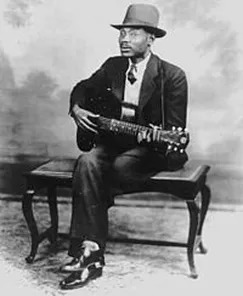
Blind Boy Fuller
By Doyle M. Pace, originally published in the August 1996 Blues News Sixty years ago, a slight, neatly dressed black man stood on the corner of Seventh and Patterson Streets in Winston-Salem, North Carolina. He was playing his guitar and singing ragtimey blues. This guitar player was Blind Boy Fuller. He would become one of four great…
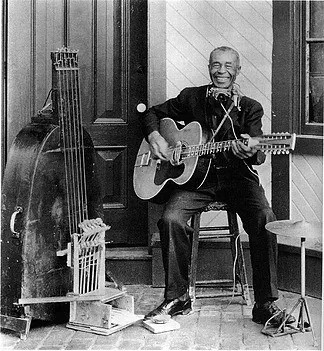
Jesse “Lone Cat” Fuller
By Doyle M. Pace, originally published in the December 1996 Blues News “I got the blues from my baby, Left me by the San Francisco Bay. Ocean liner took her so far away.” Anyone who was of the age of awareness in the I 960’s remembers San Francisco Bay Blues, an anthem of folk singers, but did…
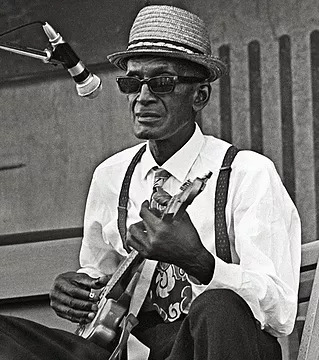
Sleepy John Estes
By Doyle Pace, originally published in the November 1995 Blues News When the documentary filmmaker David Blumenthal rediscovered Sleepy John Estes in 1962, the former blues great was destitute and living in a tumbled down shack in the middle of a cotton field outside the town of Brownsville, Tennessee. This was where his musical career…
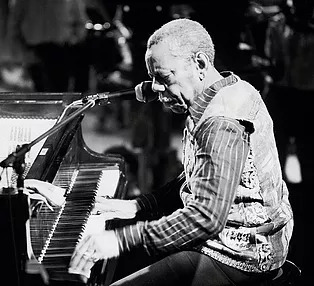
Champion Jack Dupree
By Doyle M. Pace, originally published in the November and December 1993 Blues News Last year was a sad and unfortunate year for the blues. Before 1992 was half over, three giants – Champion Jack Dupree, Willie Dixon, and Johnny Shines – had passed from the scene. Dupree, the first of the three to go, hadn’t lived in this country for…
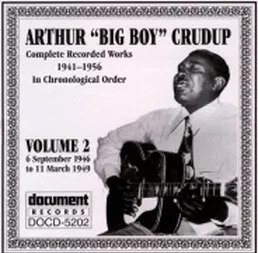
Arthur “Big Boy” Crudup
By Doyle M. Pace Originally published in the September 1993 Blues News Arthur “Big Boy” Crudup should have been able to live out his last years in comfort and prosperity from the largess of royalty checks. Sadly, this was not the case. Instead, he came to his end without the recognition and recompense that was…
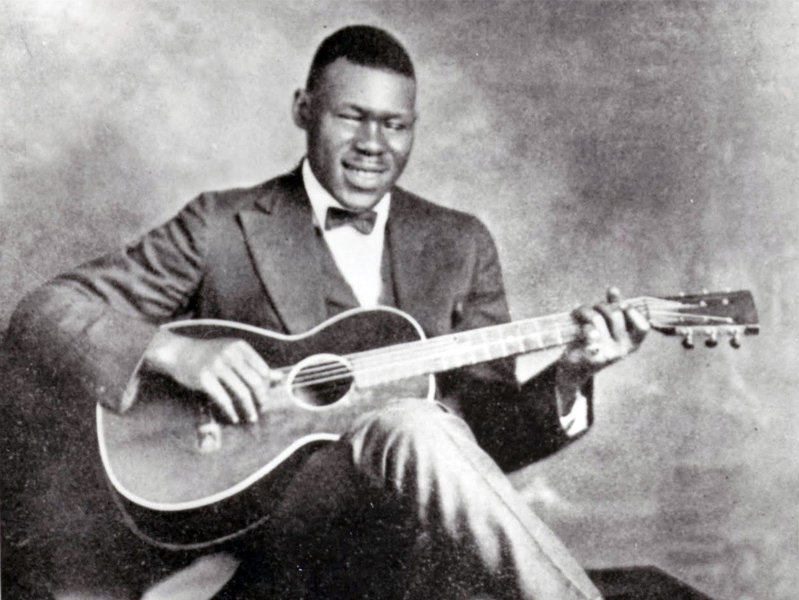
Blind Arthur Blake
By Doyle M. Pace, originally published in the June 1993 Blues News Sometimes in the late 1920s, a blind musician using the name of Arthur Blake migrated to the city of Chicago and took an apartment at the corner of 31st Street and College Grove Avenue. On most Mondays the flat was the site of…

